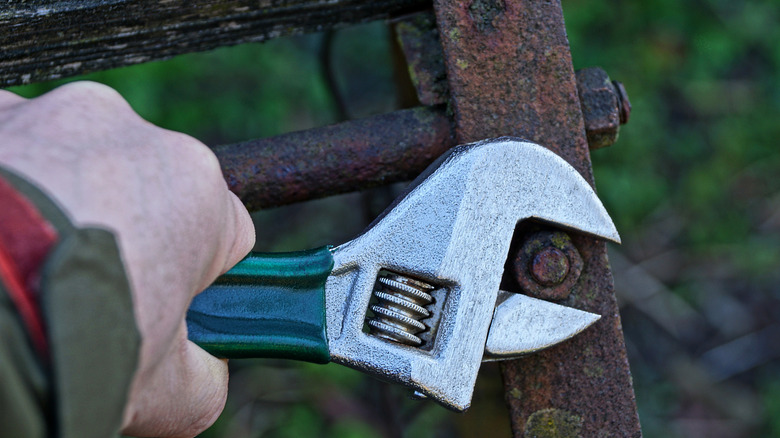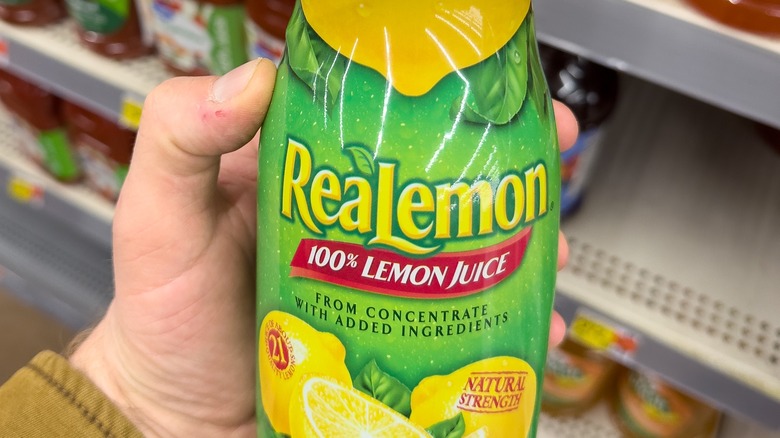Remove A Rusted Screw With The Help Of This Lemon Juice Hack
Most know you can use common kitchen ingredients to tackle rust stains naturally. For example, lemon juice and baking soda spring to mind. Lemon juice contains citric acid and baking soda is abrasive, so these ingredients work as a team to dissolve and scrub away the layer of rust on the surface of any given metal object. How possible is it that lemon juice would work to remove the rusted screw you just can't get out of that old backyard grill you're trying to dismantle so you can clean it? The answer is it might work, depending on how acidic that particular lemon is, how long you let the stuck nail soak in the lemon juice for, and if you're willing to use a more concentrated version of the rust-fighting compound lemons contain.
What's doing all the work in this lemon juice hack is the citric acid that citrus fruits like lemons, oranges, and grapefruit (and some other types of fruit) contain. It's a strong chelant — the acid's molecules attach themselves to the ions that make up the metal (and its associated rust), breaking them apart. Soaking discolored metal bolts, nuts, and screws in a bath of at least 10% citric acid removes the rust that's tarnishing the surface. The items might not come out of their soak looking like new, but the acid does a decent removal job. So this indicates that lemon juice should have the same effect. The acid works faster in higher temperatures.
How to use lemon juice (or citric acid) to release a stuck screw
If you want to use lemon juice for this hack, it's more efficient to buy bottled juice rather than squeeze fresh lemons. Walmart sells a 32 fluid ounce bottle of Great Value 100% lemon juice for just over $3. Similarly to how you easily remove hard water buildup from your faucets, pour or spray a generous amount of juice over the stuck screw and wait for about 30 minutes. Turn the screw with a screwdriver. Repeat the process if it stays stuck. Rinse away the lemon juice thoroughly once the screw is loose. Any leftover citric acid will accelerate future rusting.
Alternatively, go straight to the active ingredient. Don some gloves and eye protection, and add about 1.7 ounces of food grade citric acid powder — a one-pound container of Nature's Flavors citric acid powder is under $8 — to between 0.2 and 0.3 gallons of hot water and pour the solution over the problematic screw. Set a timer for 20 minutes to a few hours and try again — gently — to remove the rusted screw to prevent breakage. If the water turns brown, you know the acid is doing its job. Depending on the size and portability of the item with the rusted screw, you could pressure wash it after soaking in lemon juice or citric acid to blast away the now-unstuck rust from all those tight nooks and crannies before you attempt to loosen the screw again.

